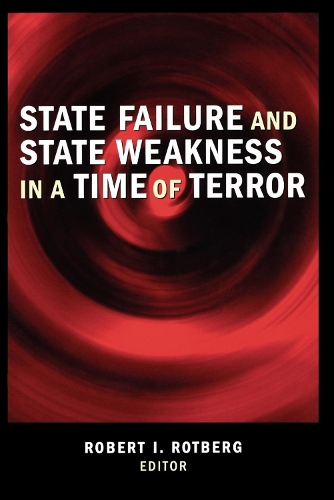
State Failure and State Weakness in a Time of Terror
(Paperback)
Available Formats
Publishing Details
State Failure and State Weakness in a Time of Terror
By (Author) Robert I. Rotberg
Bloomsbury Publishing PLC
Brookings Institution
31st January 2003
United States
Classifications
Professional and Scholarly
Non Fiction
Warfare and defence
Development studies
Development economics and emerging economies
320
Physical Properties
Paperback
368
Width 152mm, Height 229mm, Spine 23mm
508g
Description
Since September 11th 2001, the threat of terror has given the failed state problem an immediacy and an importance that transcends its previous humanitarian dimensions. In the past, failure had fewer implications for peace and security. Now failed states pose dangers to themselves, to their neighbours and to people around the globe. Preventing nation states from failing, and reviving those that do fail, has become a strategic, as well as moral, imperative. The introduction to this text develops a theory of state failure and suggests how it may be guarded against. The subsequent chapters illustrate the state failure paradigm by examining cases of state collapse (Somalia), state failure (Democratic Republic of the Congo, Sierra Leone and the Sudan) and states at risk for failure (Colombia, Fiji, Haiti, Indonesia, Lebanon, Sri Lanka and Tajikistan). The last chapters ask when and how weak states succumb to failure, and how that fatal slide can be arrested.
Author Bio
Robert I. Rotberg is director of the Program on Intrastate Conflict, Conflict Prevention, and Conflict Resolution at Harvard University's John F. Kennedy School of Government, and president of the World Peace Foundation. Rotberg is the author or editor of numerous books, including State Failure and State Weakness in a Time of Terror (Brookings/WPF, 2003).
